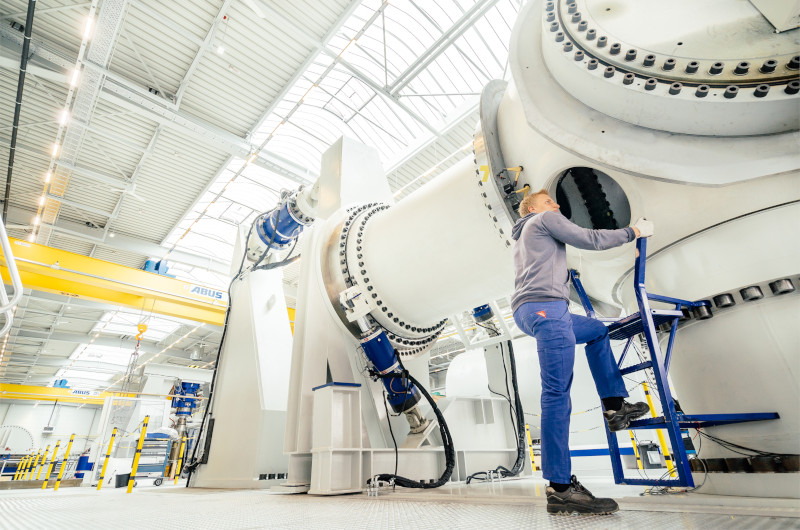Welcome to Sino Bearings web
24x7 HOTLINE:+86-28-81454188

 NEWS
NEWSIn March the colleagues at thyssenkrupp rothe erde reached a milestone in their production history: the manufacturing of the 1,000th multi-megawatt rotor bearing. We took a closer look at this component of wind turbines, which is so important fr a successful energy transition.
18Two years after the 500th rotor bearing was produced, our colleagues at thyssenkrupp rothe erde cracked the 1,000! Six years ago, series production started on the basis of a prototype developed and tested in cooperation with the leading producer of offshore wind turbines. Never before has a larger rotor bearing been built in higher volumes. The rotor bearings are part of an offshore direct-drive wind turbine with a rotor diameter of up to 170 meters. This corresponds to the length of two Airbus A380s.
Wind power plants in Germany: an integral part of the landscapeEspecially in Lower Saxony, Brandenburg and Schleswig-Holstein, wind turbines are now part of the landscape. In 2019, wind power overtook lignite in Germany with a share of 24.4 percent of total energy, and today represents the most important source of energy in Germany. With an installed capacity of around 61,405 megawatts, Germany ranks third in the world in terms of wind energy and is the number one in Europe. Rothe erde® rotor bearings generate energy for up to 7.5 million households every year.

And wind energy continues to hold great growth potential: Of the nearly 30,000 German wind turbines currently in operation, only about 1,200 are “offshore”, i.e. in the sea – the remaining turbines are distributed inland. But far out at sea, the wind is particularly constant and strong. Exactly the right place to use wind to generate electricity. Because the wind not only churns up the sea, but also drives the rotor blades of the wind turbines.
Rotor bearings for offshore wind turbines must be able to withstand thisConstant and strong winds, temperature fluctuations and strong wave movements place great demands on the bearings: For use in offshore plants, they must be able to withstand all forces of nature. In order to keep electricity generation costs low, it makes sense to install particularly large and powerful turbines – with blade lengths of over 100 meters and rotor diameters of almost 220 meters. The rotor bearings must be dimensioned accordingly to be able to absorb enormous forces.

Rotor bearings from thyssenkrupp rothe erde are known for their robust design and excellent performance. They are manufactured to the highest material purity, induction hardened and assembled in clean rooms. The high salt content of the marine environment also requires all components used in offshore wind turbines to have appropriate corrosion resistance. For this reason, rothe erde® rotor bearings are provided with an anti-corrosion coating.
Rotor bearings get better and betterSince the first delivery, thyssenkrupp rothe erde has continuously optimized the production process. State-of-the-art production methods allow us to meet customers’ high demands on the efficiency and reliability of rotor bearings. In addition, a significant increase in delivery volumes was achieved to meet the growing demand of the offshore market.

The rotor bearings, which are up to four meters in size and weigh over 14 tons, leave the factory closed, sealed and ready for installation. rothe erde® rotor bearings are among the key components for wind turbines and thus contribute to the expansion of renewable energies.

Large-diameter antifriction bearings ensure that everything runs smoothly, and not only in wind turbines. Whether in the heart of the Gotthard mountain range on huge oil tankers or very special cruise ships – our developers are working on some of the most exciting engineering projects in the world.
Author Güllü Beydilli from thyssenkrupp